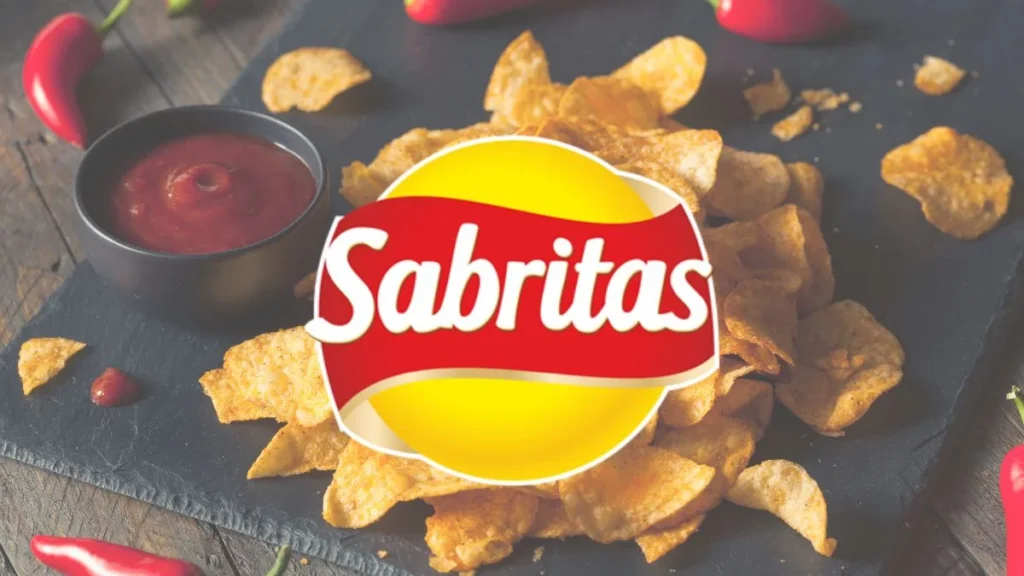Sabritas, a Mexican snack company owned by PepsiCo, has been a staple in the country’s culinary landscape since its inception. Known primarily for its production of chips, Sabritas has grown from a small, bicycle-based distribution network into a behemoth controlling around 80% of the Mexican snack market. This article delves into the history, evolution, and impact of Sabritas, offering a comprehensive overview of its journey from a local favorite to a national powerhouse.
Founding and Early Years
Sabritas was founded in 1943 by Pedro Antonio Marcos Noriega in Mexico City, originally under the name Golosinas y Productos Selectos. The company started with a modest range of products, including potato chips, corn chips, and various snacks. The name Sabritas is a portmanteau of “Sabrosas y Fritas,” which translates to “Tasty and Fried” in English, aptly capturing the essence of the brand’s offerings.
In its early years, this relied heavily on a small distribution network, which was primarily bicycle-based. This grassroots approach allowed the company to establish a strong local presence and build a loyal customer base. Despite its humble beginnings, Sabritas’ commitment to quality and flavor quickly set it apart from competitors.
Acquisition by PepsiCo and Modernization
A significant turning point for Sabritas came in 1966 when it was acquired by PepsiCo, a year after the merger of Frito-Lay and Pepsi-Cola Company to form PepsiCo. This acquisition marked the beginning of a new era for Sabritas, characterized by modernization and expansion.
Under PepsiCo’s ownership, Sabritas began to modernize its production processes and expand its retail channels. The infusion of capital and expertise from PepsiCo allowed Sabritas to scale its operations and introduce innovative products to the market. This period of growth also saw the introduction of well-known brands such as Cheetos, Fritos, Doritos, and Ruffles under the Sabritas banner in Mexico.
Market Dominance and Product Range
Today, this is synonymous with snack foods in Mexico, holding an impressive 80% share of the Mexican snack market. The company’s product range includes not only international favorites like Cheetos and Doritos but also local delights such as Crujitos, Poffets, Rancheritos, and Sabritones. These products have become household names, beloved by consumers across the country.
In addition to its extensive product lineup, this has also introduced unique promotional items such as Tazos, which are known as POGS in the United States. These collectible discs are often included in bags of Sabritas chips, adding an element of fun and nostalgia for consumers.
Challenges and Controversies
Despite its success, Sabritas has not been without challenges. One notable incident occurred in 2000 when Sabritas manufactured taco shells that inadvertently contained Starlink, a genetically modified corn not approved for human consumption. The contaminated flour was supplied by a mill in Texas, and the shells were produced on behalf of Kraft, which distributed them in Taco Bell-branded packages to supermarkets. When the presence of Starlink was detected by Friends of the Earth, Kraft promptly recalled the taco shells.
This incident highlighted the complexities and potential risks associated with large-scale food production and distribution. However, it managed to navigate the crisis and maintain its reputation as a trusted snack provider.

Economic Impact and Growth Prospects
The Mexican salty snacks market has experienced significant growth over the years. From 2008 to 2012, the market grew at a compound annual growth rate (CAGR) of 7.4%, reaching $5.1 billion in 2012. In comparison, the U.S. savory snacks market, a more mature market, was worth over $30 billion. While the U.S. market was expected to grow moderately by 3.5% through 2017, Mexico’s emerging economy and increasing disposable incomes painted a more optimistic picture for the Mexican savory snacks market.
With the Mexican government projecting the economy to expand by 3.9% in 2014, up from 1.3% in 2013, the outlook for the snack industry was promising. This economic acceleration, coupled with a widespread habit of snacking, was expected to drive the Mexican savory snacks market to grow at a CAGR of 6%, reaching nearly $7 billion by 2017.
Sabritas, with its dominant market position and extensive product range, was well-positioned to capitalize on this growth. The company’s ability to adapt to changing consumer preferences and innovate within the snack industry has been a key factor in its sustained success.
Conclusion: Sabritas
Sabritas’ journey from a small, bicycle-based distribution network to a dominant force in the Mexican snack industry is a testament to its commitment to quality, innovation, and understanding of consumer preferences. From its founding in 1943 by Pedro Antonio Marcos Noriega to its acquisition by PepsiCo and subsequent modernization, Sabritas has continually evolved to meet the demands of an ever-growing market.
Today, Sabritas not only represents a significant portion of the Mexican snack market but also serves as a symbol of the country’s love for flavorful, high-quality snacks. Despite facing challenges and controversies, Sabritas has maintained its reputation as a beloved and trusted brand, poised for continued growth in the years to come.
As Mexico’s economy continues to expand and disposable incomes rise, the future looks bright for Sabritas. The company’s ability to innovate and adapt to changing market dynamics will be crucial in maintaining its market leadership and meeting the evolving tastes of consumers. With its rich history and strong foundation, Sabritas is well-equipped to navigate the future and continue delighting snack lovers across Mexico and beyond.









